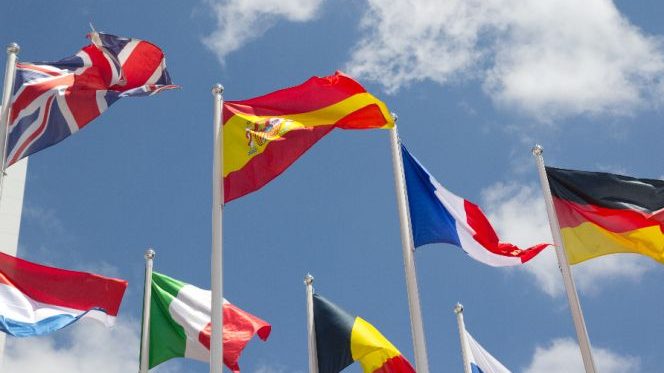A new report published Tuesday highlighted concerns that the right to conscientious objection is under threat in France, Spain, and Sweden.
The Observatory on Intolerance and Discrimination Against Christians in Europe (OIDAC) published the 71-page report examining freedom of expression, parental rights, and freedom of conscience in five European countries: France, Germany, Spain, Sweden, and the U.K.
At an online press conference on Dec. 7, Madeleine Enzlberger, OIDAC’s executive director, said that there has been a constant push in some countries in Europe to eliminate conscientious objection, particularly with regards to abortion.
The report said that the alteration of a conscientious objection clause in Sweden had already affected Christian professionals, and that “similar developments in France and Spain could lead to a complete exclusion of Christians from certain professions.”
In Sweden, Christians working in the healthcare system can face dismissal for exercising their freedom of conscience. The European Court of Human Rights refused in 2020 to consider the case of two midwives, Ellinor Grimmark and Linda Steen, who were denied employment over their refusal to perform abortions.
The European Parliament, the European Union’s law-making body, voted in June in favor of a report describing abortion as “essential healthcare” and seeking to redefine conscientious objection as a “denial of medical care.”
In Spain, the Ministry of Equality introduced plans in September to create a registry of medical doctors, nurses, and staff who object to abortion with the objective of guaranteeing the “right to terminate pregnancies” in public hospitals.
Spanish Bishop Luis Argüello of Valladolid responded to plans by asking: “If the intention is to guarantee access to this service, why don’t those who are willing to practice an abortion register?"
Spanish Equality Minister Irene Montero said on July 8 that “the right of physicians to conscientious objection cannot be above women’s right to decide,” prompting a group of 52 local medical colleges to call her proposed changes “unacceptable, illegal, and unjust.”
“With freedom of conscience ... we constantly have a push from rather ideological movements to get rid of the conscientious objection clause for medical staff, especially when it comes to procedures of abortion,” Enzlberger said.
“There’s a push for that currently, especially in Spain, but there was also one in France.”
Enzlberger shared the example of Julia Rynkiewicz, a midwifery student in the U.K. who was placed under a four-month suspension and faced a “fitness to practice” investigation due to her involvement in the Nottingham Students for Life society at her university.
The OIDAC, based in Vienna, has documented 4,000 cases of intolerance and discrimination against Christians in Europe in the past 10 years — more than 70% of which have been hate crimes committed with an anti-Christian motive.
Its work contributes to and builds on the annual data published by the Organization for Security and Cooperation in Europe (OSCE) on hate crimes in Europe.
The most recent OSCE data, published Nov. 16, documented 980 incidents against Christians in 2020, including arson attacks on Catholic churches, desecration and robbery of Eucharistic hosts, assaults on priests, and anti-Catholic graffiti on Church property by abortion activists.
“The French government statistics from 2019 say that on average almost three cases of vandalism against a church or Christian building happened every day,” Enzlberger said.
“The public visibility of violence against churches somehow normalizes violence against Christians in the public sphere. And the monitoring of hate crimes is an important barometer for the social climate in a given country,” she said.

